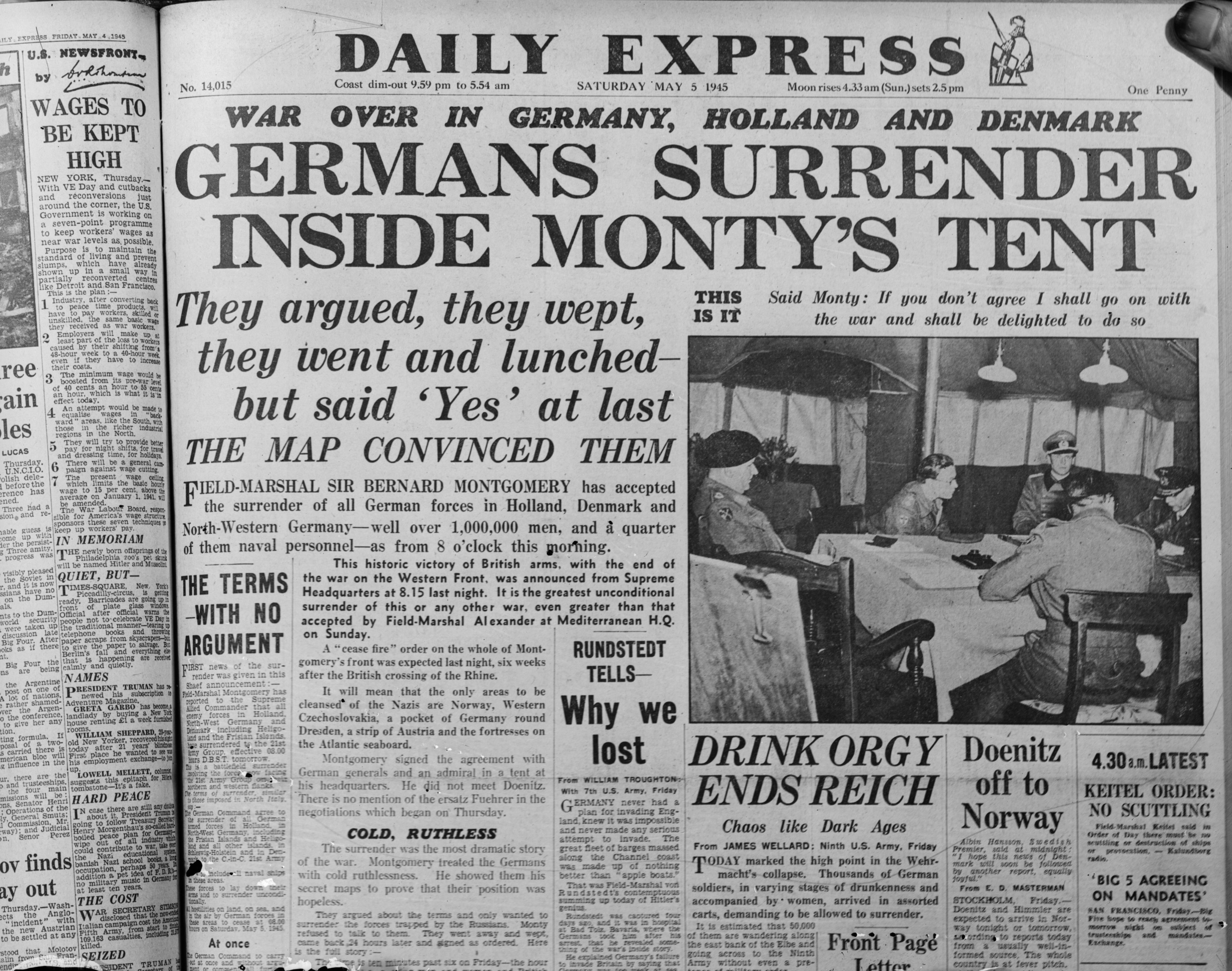This Friday marks 75 years since Nazi Germany's surrender in World War II. The fighting would, of course, grind on for three more horrific months in the Pacific, culminating only after the US dropped two atomic bombs on Japan. But Victory in Europe – VE Day as it's known on both sides of the Atlantic – ended the European phase of the worst war in human history.
Three quarters of a century later, the number of people old enough to remember the war is dwindling fast, but in some ways the defining conflict of the 20th century continues to reverberate directly into the politics of the 21st.
In some places, the war isn't even officially over. Japan and Russia, for example, continue to argue over who rightfully owns a handful of islands that the Soviet Union occupied late in the conflict.
South Korea and Japan, meanwhile, have their own island disputes, but they recently suffered a severe rupture in relations over Seoul's demand that Tokyo accept responsibility for the occupying Japanese army's wartime atrocities in Korea.
In Eastern Europe, the trauma of the war keeps coming up. The Soviet Union lost more people (some 24 million) than any other nation, in what Russians still revere as "The Great Patriotic War." Poland, Ukraine, and Belarus were largely wrecked as fighting along the gruesome Eastern front repeatedly ground through them.
Moscow still clashes with Central and Eastern European countries over the removal of statues honoring Red Army liberators, which many locals see less as monuments to liberation than as symbols of post-war Soviet oppression. Even an international Holocaust commemoration earlier this year was marred by a spat between the Russian and Polish presidents over basic World War II facts. And in Russia's conflict with Ukraine since 2014, each side has attacked the other using language lifted straight from the 1940s – Moscow accuses today's Ukrainian nationalist groups (some of whose predecessors aligned with the Nazis against the Soviet Union during the war) of being "fascists," while some Ukrainians refer to Putin as "Putler."
That said...even as some World War II animosities have lasted, so too have the big international institutions – the UN, IMF, World Bank – that have served as pillars of the post-war international system. Those institutions depend on international cooperation and on US leadership, both of which are in short supply as the world grapples with a new global crisis.
So, here's a question: Will the COVID-19 pandemic, itself a new crisis of global proportions (though mercifully nowhere near as destructive as World War II) bring fundamental changes to the post-war order?
More For You
As expected, the Supreme Court struck down the bulk of Donald Trump's sweeping “Liberation Day” tariffs as illegal … and almost nothing changed.
Most Popular
What’s Good Wednesdays™, February 25, 2026
Small businesses at a crossroads
Chris, an Army veteran, started his Walmart journey over 25 years ago as an hourly associate. Today, he manages a Distribution Center and serves as a mentor, helping others navigate their own paths to success. At Walmart, associates have the opportunity to take advantage of the pathways, perks, and pay that come with the job — with or without a college degree. In fact, more than 75% of Walmart management started as hourly associates. Learn more about how over 130,000 associates were promoted into roles of greater responsibility and higher pay in FY25.
Somewhere in the Donbas region, Ukrainian soldier Artem Bondarenko says he hasn’t slept through the night in months as he defends Eastern Ukraine.
In the latest episode of Vladimir Putin and Xi Jinping's hit wellness podcast This Authoritarian Life, we learn how positive communication patterns can break negative cycles in our relationships -- especially our relationships with Iran, Syria, Venezuela, and Cuba. #PUPPETREGIME
